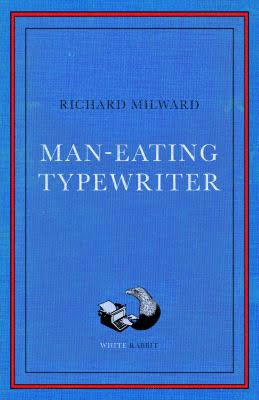What do you think?
Rate this book


Kindle Edition
Published March 16, 2023
In this extraordinary technical feat, Richard Milward plunges us into the dizzying landscape of 1960’s London with the story of Raymond Novak, an anarchist promising to commit the crime of the century, and the publishers hoping to capitalize on his violence.
With remarkable command over the Polari slang that dances, spins, spits and slashes its way across the page, Milward has created a very rare beast of a book; one that is propulsive, relevant, outrageous, and often alarmingly beautiful. Here is a novel that lays bare the depravity of human impulse, whilst testing the limits of language and form with masterful ease and reckless glee.
Man-Eating Typewriter emerges as a refreshing example of the most fun a person could have on a page and has all the transgressive energy of a cult classic in the making.
We're all in the gutter but some of us are ogling the sparkles.
